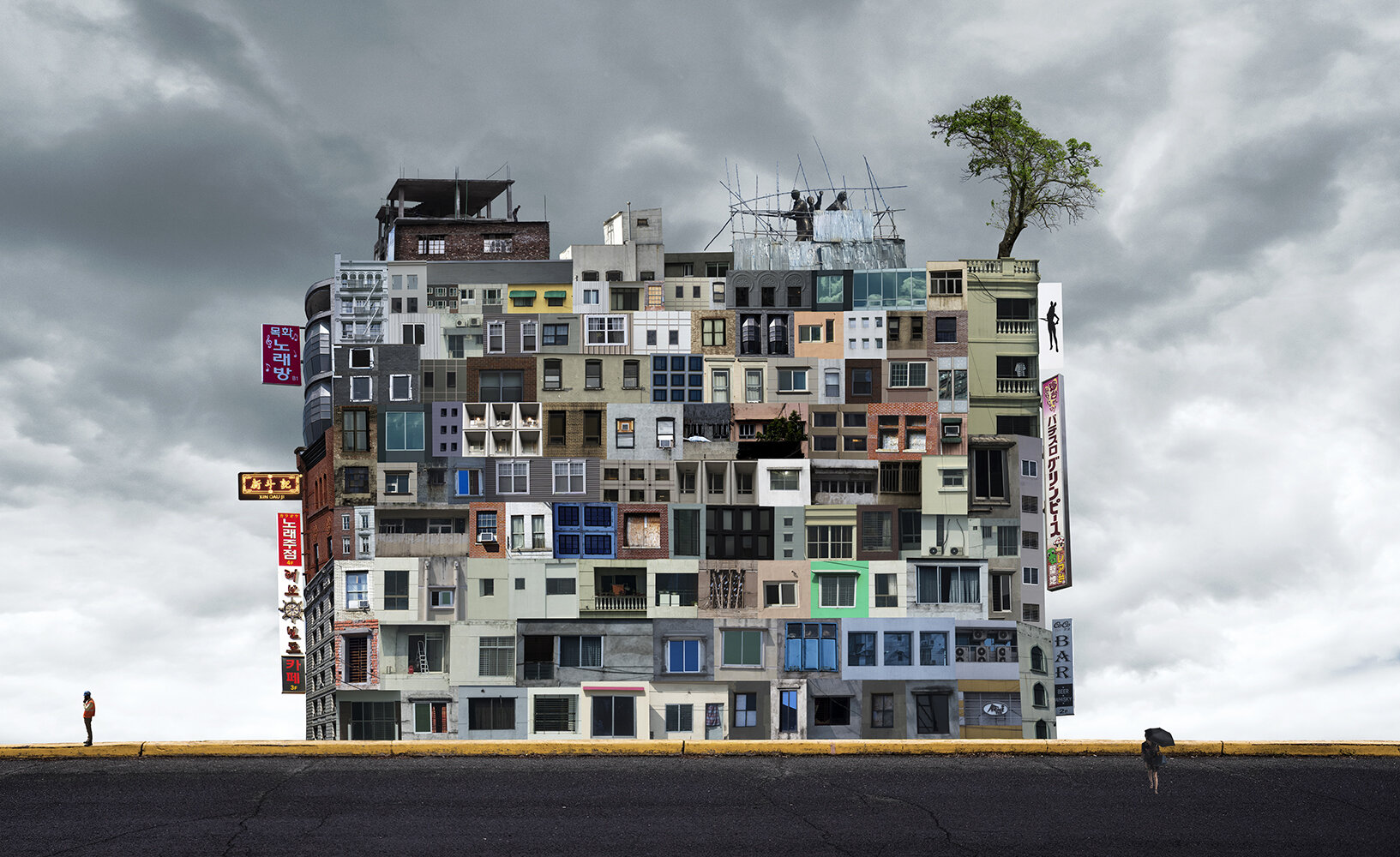Time of the City
The 21st century is the most prosperous and developed period of human civilization. Some call it the 'Anthropocene' because even the ecosystem is changing as a result of human activities. Recently, however, something has put to a halt the reckless pace of human activity. This thing that brought the suffocating daily human activity to a global halt was not something big or grand; it was a tiny, invisible virus.
No one had ever imagined this would happen: the always-crowded streets and buildings of the metropolises suddenly emptied, and many vehicles vacated the cities. The virus took advantage of the facilities of modern civilization and occupied all continents on the globe within a few months. It revealed vulnerabilities all over the world that had been buried until then, and incapacitated the existing orders and laws that ruled human society.
Self-quarantine, non-face-to-face contact, wearing a mask, social distancing—these new rules and lifestyles expressed in unfamiliar terms have limited people's lives. Many people lost their freedom and were locked up in their homes, during which their normal daily routines collapsed, and their dreams and plans went to waste. They lost their jobs, health, and even loved ones. And yet, we still do not know when this painful time will come to an end.
Only time will tell what kind of scars and impacts this global catastrophe—the Pandemic—has left on humanity. However, one thing is clear for me: people have started making new types of invisible fences—ones that hadn’t existed before. These protective barriers that appear in order to secure the health and survival of oneself and one’s loved ones—we don’t know in what form they will appear in the daily lives of people, or in the history of humanity. However, as the uncertainties and anxieties of the future, of safety, of survival increase, so too, will the strength of the fortress people put up to protect themselves increase.
Although things different from before are becoming the ‘New Normal,’ I hope people won’t lose the trust and warmth they hold towards each other. Painful memories of loss or disconnection; frustration caused by hard reality—these drive us into deep despair. But if we do not lose hope, I am certain that a new path will open up for us.
도시의 시간
21세기는 인류 문명이 가장 번성하고 발전한 시기로, 혹자는 이를 ‘인류세(人類世)’라고도 부른다. 인간의 활동으로 지구 생태계마저 변화하기 때문이다. 그런데 최근에 그리 거침없던 인류의 행보를 일순간 멈추게 한 것이 있었다. 매일 숨막히게 돌아가던 인류의 활동을 전지구적으로 정지시킨 것은 거대한 어떤 것이 아닌, 눈에 보이지도 않는 아주 작은 바이러스였다.
이런 일이 생길 줄은 예전엔 상상도 못했다: 늘 붐비던 대도시의 거리와 건물들이 갑자기 텅 비고, 많은 차량들이 도시를 빠져나갔다. 바이러스는 현대문명의 이기(利器)를 타고 몇 달이 안되어 지구상의 전 대륙을 점령했다. 그리고 그때까지 묻혀있던 세상 곳곳의 취약점들을 드러내고, 사회를 지배하던 기존 질서와 법칙을 무력화시켰다.
자가격리, 비대면 접촉, 마스크 쓰기, 사회적 거리두기 등 낯선 용어로 표현되는 새로운 규칙과 생활방식이 사람들의 삶을 제한했다. 그리고 많은 사람들이 자유를 잃고 갇혀 지내는 가운데, 평범한 일상이 무너지고, 추진하던 꿈과 계획이 물거품이 되고, 생계와 건강은 물론 사랑하던 사람들 마저 잃어버렸다. 그럼에도 불구하고 이 고통스런 시간이 언제 끝날지를 아직 알 수가 없다.
팬데믹(Pandemic)이란 지구적 재앙이 인류에 어떤 상흔을 남겼는지, 어떤 영향을 끼쳤는지는 시간이 좀 더 지나야 알 수 있을 것이다. 그런데 내가 볼 때 한 가지 확실한 것은, 사람들은 이전에는 없던 새로운 형태의 보이지 않는 울타리를 이미 만들기 시작했다는 것이다. 자신과 사랑하는 이들의 안전과 생존을 위해서 등장한 이 보호막이 사람들의 일상에서, 인류의 역사에서 구체적으로 어떤 형태로 나타날 지는 아직 알 수가 없다. 다만, 미래의 불확실성과 안전과 생존에 대한 불안감이 더 커질수록, 사람들은 자신을 지키기 위해 두른 요새를 더 강화할 것이다.
이전과는 다른 것들이 뉴노멀(New Normal)이 되어가고 있지만, 나는 사람들이 서로를 향한 신뢰와 따뜻한 마음은 잃지 않았으면 한다. 상실과 단절의 아픈 기억들, 힘든 현실로 인한 답답함이 우리를 깊은 절망으로 몰아가지만, 희망을 잃지 않으면 분명히 새 길이 열릴 것이다.

















